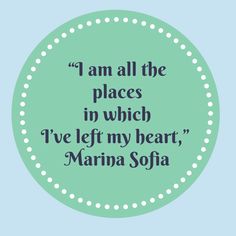
September 13, 2017, by Shweta
Between worlds: Growing up as a ‘Third Culture Kid’
Recently, I wrangled my family together to watch Hasan Minhaj’s comedy special on Netflix. For those of you who don’t know who that is, Minhaj gained massive popularity as a correspondent on The Daily Show and for his witty banter and unbridled honesty at the White House correspondent’s dinner. His comedy special, Homecoming King, however, resonated with thousands of people around the world, myself included.
The hour-long episode takes his audience on a journey through his life as an Indian immigrant growing up in America. Minhaj spends much of his show discussing the generational – and cultural – gap between himself and his immigrant parents while eliciting not just laughter but tears as well. Interestingly enough, his story is but a mirror that echoes the daily struggle of growing up as third culture kids (TKCs) in today’s world.
A TKC is an individual who has grown up – or spent a significant portion of their formative years – in a culture other than that of their parents or their passports. Such kids generally form an identity comprised of their parent’s culture, the culture absorbed from the place they grew up in and an amalgamation of the two. I, myself, was born to Indian immigrant parents in Dubai. Having been exposed to multiple cultures before I could solidify my own identity, I often find that I don’t fully understand Indian culture but neither have I fully immersed myself in Arab culture. Consequently, I have carved a niche for myself that is a microcosm for the globalization that is common-place today.
While most kids are aware of (and often exasperated by) the generation gap between themselves and their parents, TKCs also often find a rift between themselves and other kids their age due to a lack of the stereotypically accepted notion of identity. However, the way I see it, growing up in a melting pot of cultures has shaped the way I view the world around me. It has made me a more compassionate, understanding and accepting human being. Most importantly, it has taught me that home and identity is a feeling rather than a place or a legality.
With the new academic year around the corner, there will soon be thousands of eager and fresh faces flooding the Nottingham campuses. Many of you would have travelled far and wide to start a new life in the UK. To you I say, own your identity, whatever it may be, and wear it proud. Before you know it, the culture that Nottingham has to offer will become yet another that you will claim your own. And how amazing is it – and how blessed are you – to be a part of so many cultures and to claim not one or two countries your home, but all of this world that we live in.
No comments yet, fill out a comment to be the first

Leave a Reply